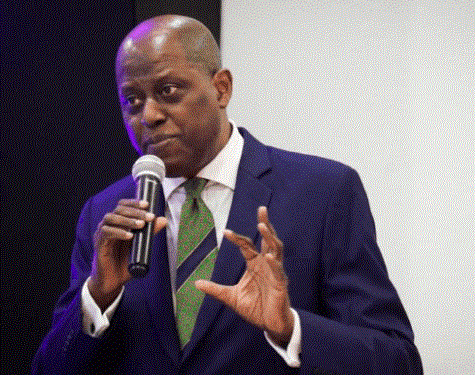The Central Bank of Nigeria (CBN) has announced that mobile money operators, including prominent fintech firms like OPay, Palmpay, Kuda Bank, and Moniepoint, will soon resume enrolling new customers. This update came from CBN Governor Olayemi Cardoso during the 295th Monetary Policy Committee (MPC) meeting held on Tuesday, where the apex bank also raised the interest rate from 24.75% to 26.25%.
Governor Cardoso clarified that the CBN has not revoked the licenses of any fintech organizations. Instead, the bank is implementing a “stronger regulatory framework” to enhance the operations of these firms.
“I am confident that as time goes on, and hopefully in another couple of months, all these will be something of the past and then you will see that sector going back into what they’ve been known to do before, but certainly with a very stronger regulatory framework,” he said.
In April, the apex bank stopped fintech companies from onboarding new customers, a move that has been seen as a clampdown on the financial sub-sector by the Cardoso-led CBN.
When asked why the apex bank took the decision, the CBN chief said reports that the CBN has decided to clamp down on fintech firms are “furthest from the truth”.
He said “the fintechs have not been singled out for any exceptional kind of treatment”, adding that the CBN remained proud of the exploits of fintech firms in the last number of year and the apex bank would continue to support and strengthen them.
“However, regulation is very critical in a sector that seems to have grown so incredibly rapidly,” Cardoso said, citing illicit flows within the sub-sector.
“More recently, we had course to take a deep dive look at the whole issue of illicit flows and money laundering particularly within the non-heavy regulated banking system and we all know some of the issues that came out with cryptos and some of the messages we put out after that, which of course, gave us some course to know that there is the need for heightened surveillance.”
He said the apex bank has had major handshake with security agencies to identify the places to tighten regulations and surveillance in the sub-sector.
Cardoso said, “For that reason, we were concerned with respect to how we saw the issue of anti-money laundering and illicit flows as they made their way within the various sub-sectors of the financial industry and we felt there was a need for us to take a breather and work with different players to strengthen regulations, not by any means to throw them out of business.
“Let me re-emphasise that as at this point in time, we have not revoked the licenses of any of the fintech organisations.”















